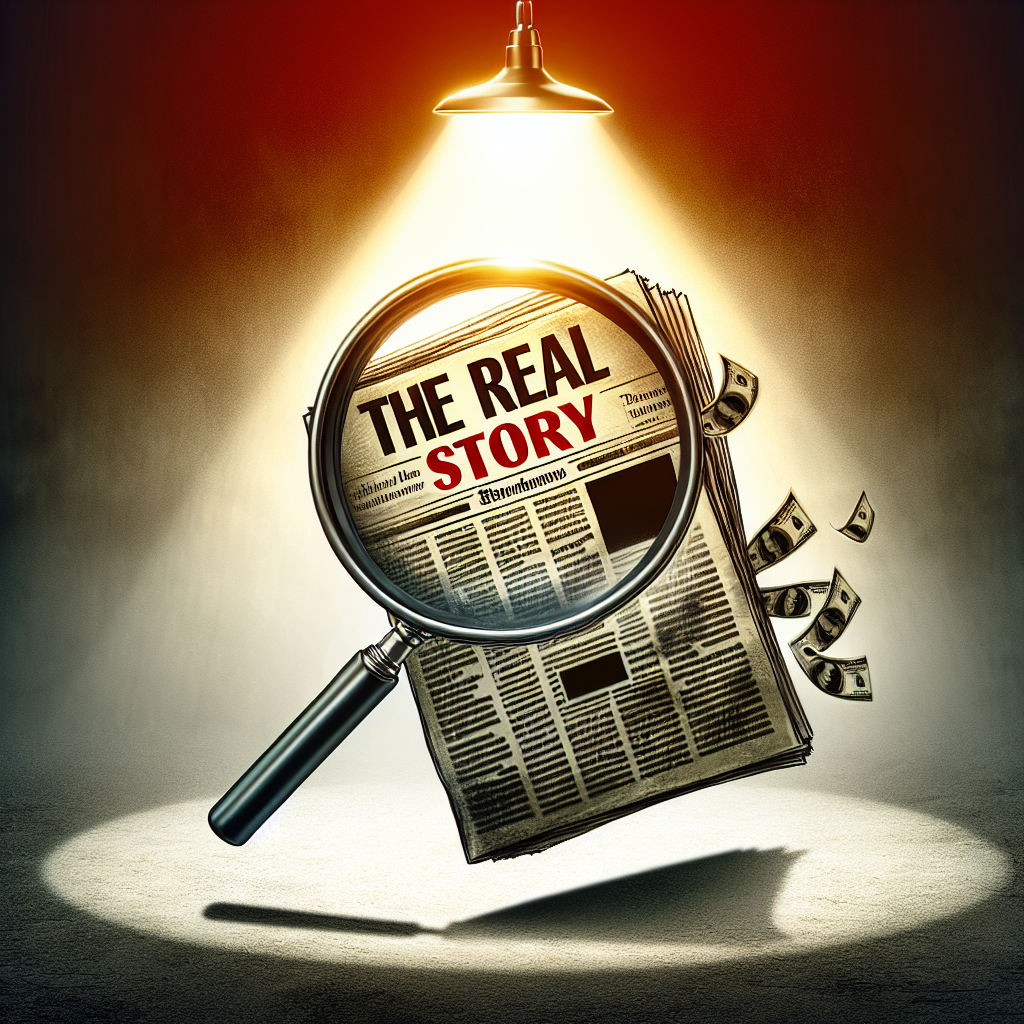Ad Details
-
Ad ID: 704
-
Added: November 24, 2024
-
Views: 108
Description
Uncovering the Truth: Inside the World of Dirty News ===
In a world inundated with information, the prevalence of "dirty news" has emerged as a powerful force, manipulating narratives and distorting facts. This phenomenon not only misleads audiences but also erodes trust in legitimate media sources. As consumers, we increasingly find ourselves navigating a labyrinth of misinformation, making it crucial to understand the mechanisms behind this growing trend. The stakes are high; unchecked dirty news can sway public opinion, influence elections, and shape societal norms. In this exploration, we will delve deep into the shadows of misinformation and its profound impact on public perception.
Exposing the Shadows: The Rise of Misinformation in Media
The digital age has ushered in an unprecedented flow of information, with social media platforms acting as both the stage and the megaphone for dirty news. The speed at which stories can be shared has far outpaced the traditional media’s ability to fact-check and verify information. As a result, sensationalism often trumps accuracy, and misleading headlines can go viral before they are debunked. This environment fosters a culture where opinion is often mistaken for fact, leading to an increasingly polarized society.
Moreover, algorithms that prioritize engagement over reliability further exacerbate the problem. Content that evokes strong emotional responses—whether joy, anger, or fear—tends to be favored, pushing sensationalist and misleading material into the spotlight. This tactic not only cultivates a public that craves controversy but also perpetuates a cycle where legitimate journalism struggles to compete with clickbait headlines. The impact is far-reaching, as misinformation not only misguides individual beliefs but also reshapes broader societal narratives.
The rise of dirty news is not merely a byproduct of technology; it is also a calculated strategy employed by various entities to manipulate public discourse. From state-sponsored disinformation campaigns to corporate interests aiming to sway consumer behavior, the motivations behind such practices are complex and multifaceted. Understanding these motivations is critical for consumers who wish to discern fact from fiction, highlighting the need for media literacy and critical thinking in an age of information overload.
Investigating the Impact: How "Dirty News" Shapes Public Perception
The ramifications of dirty news extend far beyond individual misinformed beliefs; they ripple through societal structures, influencing everything from political landscapes to public health initiatives. For instance, during the COVID-19 pandemic, misinformation about treatments and preventive measures led to confusion, fear, and ultimately, preventable deaths. This tragic outcome illustrates how deeply intertwined public health is with the credibility of news sources, emphasizing the need for vigilance in how information is consumed and disseminated.
Dirty news also fosters a culture of division, where misinformation plays on existing biases and fears. By exploiting emotional triggers, misleading narratives can entrench individuals in echo chambers, further polarizing communities and diminishing collective understanding. This division can have profound effects on democratic processes, as voters become more susceptible to manipulation, relying on distorted information to make critical decisions. The integrity of democratic societies hinges on informed citizenry, which is increasingly threatened by the omnipresence of misinformation.
Combating the influence of dirty news requires a multifaceted approach. Media literacy programs that educate individuals on identifying credible sources and recognizing bias are essential. Furthermore, media organizations must adopt more rigorous fact-checking protocols and leverage technology to flag potential misinformation. By fostering a culture of accountability and critical engagement, society can begin to reclaim the narrative and restore trust in the media landscape, allowing for more informed public discourse.
The Way Forward in a Misinformation Age ===
Navigating the convoluted world of dirty news is no easy feat, but with a proactive approach, we can empower ourselves to seek truth amidst the chaos. Combatting the spread of misinformation demands a collective effort, from fostering media literacy to promoting integrity in journalism. As consumers of information, we hold the keys to a more informed society. It is essential to remain vigilant, question narratives, and engage with credible sources—our future depends on it. For those yearning to dive deeper into the intricacies of media consumption and its implications on society, the journey begins with a commitment to discernment and open dialogue. Join in the conversation and be part of the solution in this critical fight for truth.
Alex Formenton: Latest Updates on His NHL JourneyAishwarya Rai: Latest Updates on Her Career and ProjectsEbrandon News: Latest Updates and Community HighlightsRelevant LinkRelevant LinkRelevant Link






